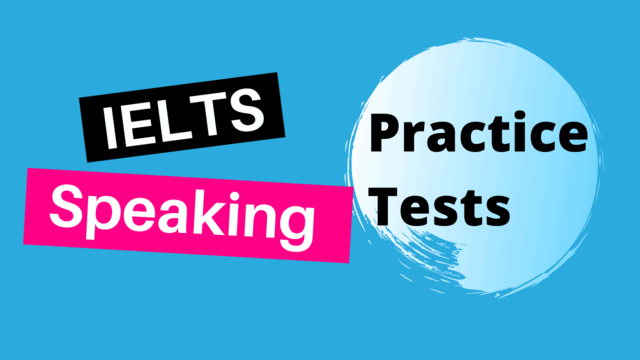The IELTS Speaking test evaluates your communication skills across three sections: Part 1 (Introduction and Interview), Part 2 (Long Turn), and Part 3 (Discussion). Computers is a common topic, allowing examiners to gauge your opinions on technology, digital habits, and related issues. Below is a sample test with questions and answers, plus tips for maximizing your IELTS Speaking score.

Part 1: Introduction and Interview
- Question: How often do you use a computer?
- Answer: I use a computer daily for work, communication, and entertainment. It’s an essential tool for most of my tasks.
- Question: What do you usually use a computer for?
- Answer: I mostly use it for work-related tasks like emails, research, and document editing. I also enjoy watching videos and staying updated on news.
- Question: Do you think computers have made life easier?
- Answer: Yes, definitely. Computers help us communicate, store information, and access a vast amount of knowledge, making everyday tasks quicker and more efficient.
- Question: Has the Internet changed how people use computers?
- Answer: Absolutely. With the Internet, people use computers for shopping, social media, and even working remotely, which has reshaped how we interact and get things done.
Part 2: Long Turn
- Question: Describe a time when a computer helped you solve a problem. You should say:
- what the problem was
- how the computer helped
- how you felt about it
- and explain why it was important.
- Answer: I once lost a document before a deadline, but I used my computer’s backup feature to recover it. I was relieved as it saved me from redoing hours of work. This experience made me appreciate the technology even more.
Part 3: Discussion
- Question: What are some disadvantages of relying too much on computers?
- Answer: Over-reliance on computers can lead to a sedentary lifestyle, privacy concerns, and even loss of traditional skills. People can sometimes neglect real-life interactions.
- Question: How can parents monitor their children’s computer use?
- Answer: Parents can set up parental controls, limit screen time, and encourage educational activities on the computer. Open communication also helps ensure responsible usage.
- Question: Do you think the Internet is secure for online transactions?
- Answer: It can be secure if people use reputable sites, avoid public Wi-Fi for transactions, and follow cybersecurity best practices, though risks still exist.
- Question: How do you think computers will change in the future?
- Answer: Computers may become more integrated with AI, making them faster, more intuitive, and essential in various aspects of life. They’ll likely be even more portable and powerful.
- Question: Do you think students should rely on computers for studying?
- Answer: Yes, computers are valuable study tools, but it’s important to balance online learning with critical thinking and real-world problem-solving skills.
Tips for Scoring High in IELTS Speaking
- Enhance Pronunciation and Intonation
Speak clearly, varying your tone to add interest. Practice tech-related words like “software,” “security,” “cybersecurity,” and “artificial intelligence.” - Use Specific Vocabulary
Discuss topics like “cloud storage,” “data privacy,” and “automation” to show command of topic-specific language. - Structure Responses Logically
Organize your answers with a clear main idea, supporting examples, and a conclusion where possible. This makes your speech easier to follow. - Incorporate Complex Grammar
Use varied sentence structures, like conditionals (“If computers keep advancing…”) and relative clauses (“People who rely too much on technology…”). - Practice Staying Fluent
Avoid long pauses. If unsure, stay calm and talk around the topic confidently. Practice answering tech-related questions for more ease.
By practicing these questions and following these tips, you can improve fluency, vocabulary, and organization, helping you achieve a high score on the IELTS Speaking test. Good luck!
